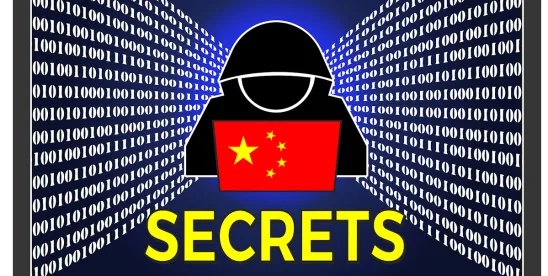Following the Seventh Circuit’s recent decision in Motorola Solutions Inc. v. Hytera Communications Corp. Ltd., the United States may become a destination venue for resolution of global trade secret disputes. The Seventh Circuit held that U.S. trade secret law applies extraterritorially—reaching the theft of trade secrets outside the United States—so long as “an act in furtherance” of the offense was committed in the United States. The court held, for example, that marketing products in the United States qualified as an “act in furtherance” if the products were made using stolen trade secrets. Once an “act in furtherance” is identified, damages can be based on a company’s global sales. Motorola, for example, resulted in an award of $135.8 million in compensatory damages based on Hytera’s worldwide sales. Similar to the global impact of U.S. antitrust and anti-bribery laws, the Seventh Circuit’s decision highlights the critical importance to companies of considering U.S. trade secret laws. For example, if a company suffers the theft of its trade secrets anywhere in the world, it should consider the United States as a possible venue for bringing a legal claim. Conversely, companies should take measures to train employees and ensure compliance with U.S. trade secret laws even if the employees are located outside of the United States.
Summary of Allegations
The allegations of trade secret misappropriation in Motorola were centered outside of the United States. Hytera, headquartered in China, hired three engineers from Motorola in Malaysia. The engineers downloaded thousands of documents containing Motorola’s trade secrets. Hytera used this information to launch a line of digital mobile radio (DMR) products that were functionally indistinguishable from Motorola’s products. While the employees, documents, and product development occurred outside the United States, Hytera marketed and sold the DMR products globally, including in the United States.
Outcome in District Court
Following a lengthy trial, the jury found that Hytera had misappropriated Motorola’s trade secrets. Although the theft occurred outside the United States, the court allowed Motorola to recover damages for all foreign sales involving the trade secrets because the district court held that Hytera committed “acts in furtherance” of the offense in the United States. In addition to the $135.8 million in compensatory damages, the jury awarded Motorola $271.6 million in punitive damages based on the trade secret theft. On appeal, Hytera conceded liability for the theft of trade secrets, but sought to challenge the extraterritorial application of U.S. trade secret law to acts and sales outside of the United States.
Seventh Circuit’s Decision
The Seventh Circuit largely adopted the district court’s analysis, holding that U.S. trade secret law applies extraterritorially. The court relied on statutory language providing that “[t]his chapter applies to conduct occurring outside the United States if . . . an act in furtherance of the offense was committed in the United States.” See 18 U.S.C. § 1837. While this language was originally adopted in the context of criminal trade secret offenses, the Seventh Circuit held that it also applies to civil causes of action between companies. The Seventh Circuit recognized that no other U.S. Circuit Court of Appeals has addressed the extraterritorial application of U.S. trade secret law. But the Seventh Circuit’s decision is consistent with prior district court decisions. See, e.g., Medcenter Holdings Inc. v. Web MD Health Corp (stating that “the overwhelming weight of authority indicates that the DTSA applies extraterritorially to both criminal and civil matters”).
The potential breadth of the Seventh Circuit’s opinion is notable in a few respects. First, the court did not place any concrete limit on the significance of “an act in furtherance of the offense.” Second, the court specifically disavowed any requirement that an act of misappropriation be completed in the United States. Third, the court declined to require plaintiffs to show causation between the domestic “act in furtherance” and the foreign sales underlying the damages calculation.
Takeaways
The Seventh Circuit has confirmed that companies conducting business in the United States need to account for U.S. trade secret law wherever they operate around the globe. The extraterritorial application and potentially significant damages associated with trade secret misappropriation justify companies in investing in global trade secret training and compliance programs akin to those used to mitigate the risk associated with global application of U.S. antitrust or anti-bribery laws. At the same time, Motorola highlights that the United States is a potential venue for companies seeking to protect their trade secrets. Companies that suffer the theft of their trade secrets should consider filing a lawsuit in the United States even if the acts of misappropriation took place outside the United States.





 />i
/>i

